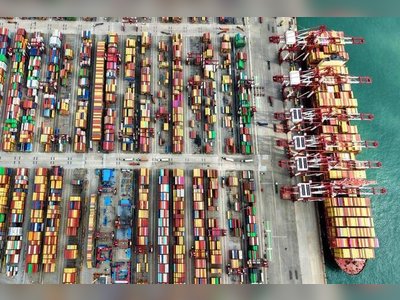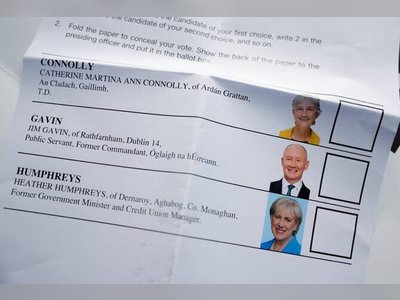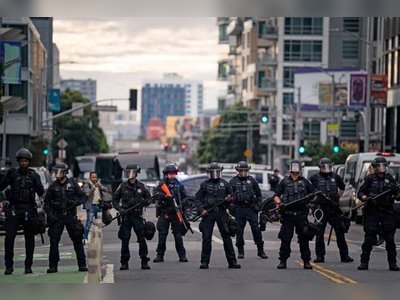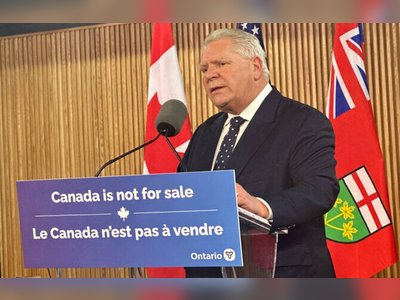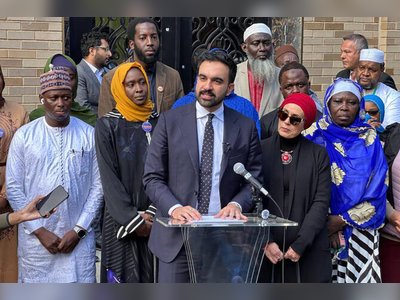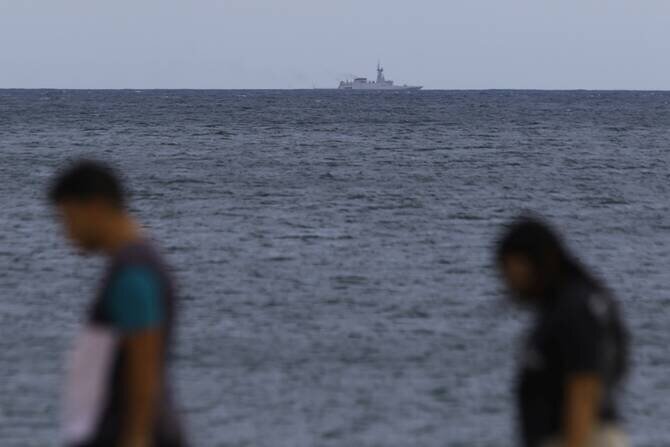
US Aircraft Carrier Deployed to Latin America as Regional Tensions Escalate
The USS Gerald R. Ford and its accompanying ships aim to disrupt narcotics trafficking and target transnational criminal organizations, sparking concerns of a potential conflict.
The Pentagon has ordered the deployment of an aircraft carrier strike group to counter drug-trafficking organizations in Latin America, marking a significant escalation of US military efforts in the region.
This move, aimed at disrupting narcotics trafficking and degrading transnational criminal organizations, has raised tensions with Venezuela's leader, President Nicolas Maduro, who accuses the Trump administration of plotting 'a new eternal war.'
US President Donald Trump's campaign to target boats allegedly involved in smuggling has led to the destruction of at least 10 vessels.
The deployment of the USS Gerald R.
Ford and eight US Navy ships is intended to enhance existing capabilities against drug trafficking, though the exact nature of these efforts remains under scrutiny.
Concerns have been voiced over the potential for conflict, particularly as Venezuela accuses Washington of preparing for an overthrow of Maduro's government.
The situation has also drawn in Colombian President Gustavo Petro, who was sanctioned by the US Treasury for allegedly allowing drug trafficking to flourish.
Regional powerhouse Brazil has expressed opposition to any military intervention in Venezuela, fearing it could destabilize South America.
Additionally, Trump has suggested that strikes on land are forthcoming, asserting authority without requiring a congressional declaration of war.
This development underscores the complexities and tensions arising from the US campaign against narcotics trafficking in Latin America, raising questions about the potential for further escalation and international implications.
This move, aimed at disrupting narcotics trafficking and degrading transnational criminal organizations, has raised tensions with Venezuela's leader, President Nicolas Maduro, who accuses the Trump administration of plotting 'a new eternal war.'
US President Donald Trump's campaign to target boats allegedly involved in smuggling has led to the destruction of at least 10 vessels.
The deployment of the USS Gerald R.
Ford and eight US Navy ships is intended to enhance existing capabilities against drug trafficking, though the exact nature of these efforts remains under scrutiny.
Concerns have been voiced over the potential for conflict, particularly as Venezuela accuses Washington of preparing for an overthrow of Maduro's government.
The situation has also drawn in Colombian President Gustavo Petro, who was sanctioned by the US Treasury for allegedly allowing drug trafficking to flourish.
Regional powerhouse Brazil has expressed opposition to any military intervention in Venezuela, fearing it could destabilize South America.
Additionally, Trump has suggested that strikes on land are forthcoming, asserting authority without requiring a congressional declaration of war.
This development underscores the complexities and tensions arising from the US campaign against narcotics trafficking in Latin America, raising questions about the potential for further escalation and international implications.

